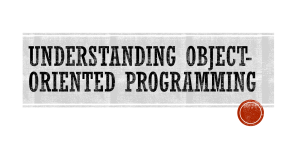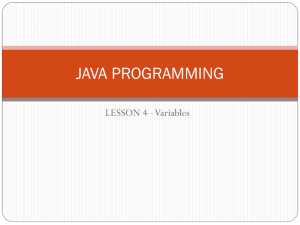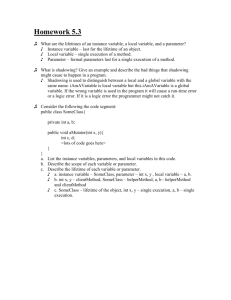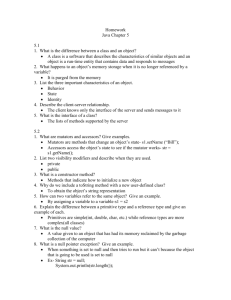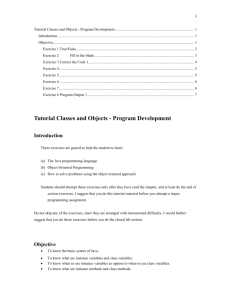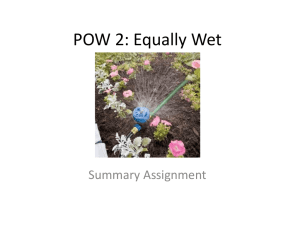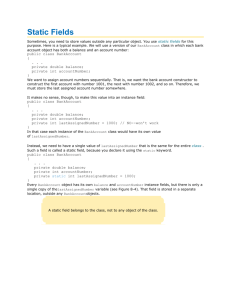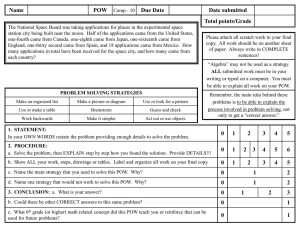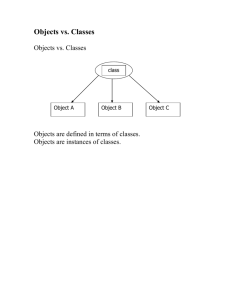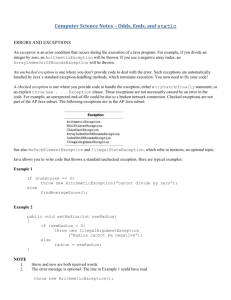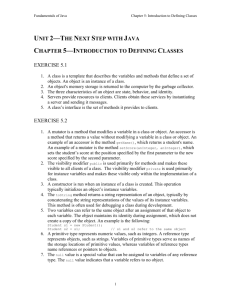Static
advertisement
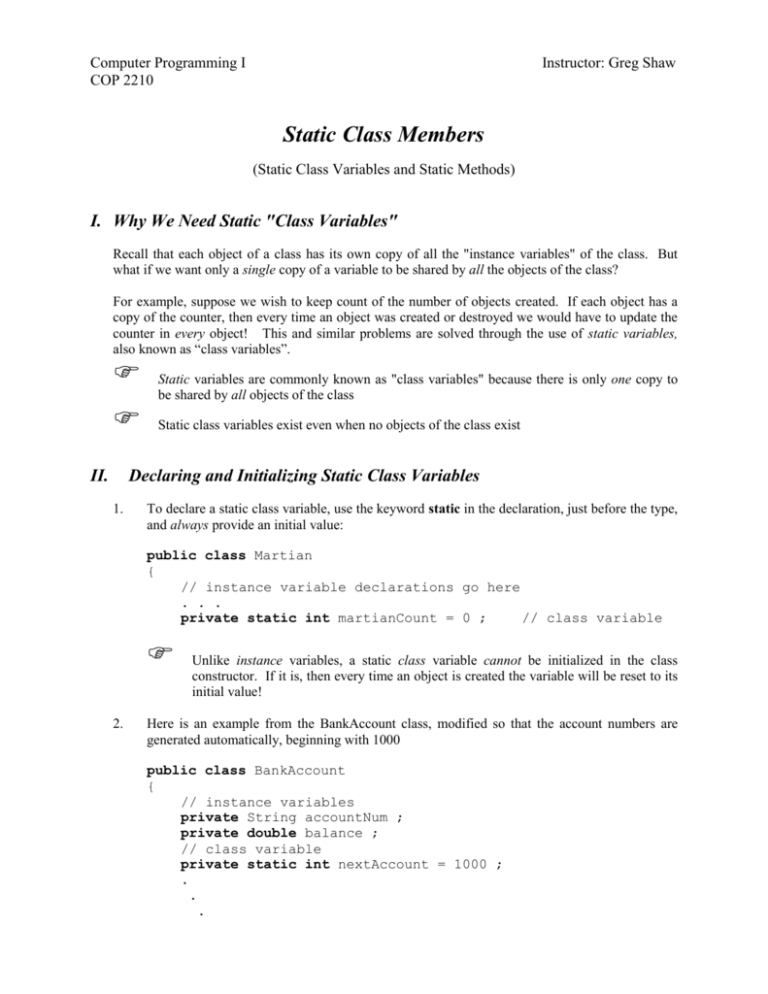
Computer Programming I
COP 2210
Instructor: Greg Shaw
Static Class Members
(Static Class Variables and Static Methods)
I. Why We Need Static "Class Variables"
Recall that each object of a class has its own copy of all the "instance variables" of the class. But
what if we want only a single copy of a variable to be shared by all the objects of the class?
For example, suppose we wish to keep count of the number of objects created. If each object has a
copy of the counter, then every time an object was created or destroyed we would have to update the
counter in every object! This and similar problems are solved through the use of static variables,
also known as “class variables”.
II.
Static variables are commonly known as "class variables" because there is only one copy to
be shared by all objects of the class
Static class variables exist even when no objects of the class exist
Declaring and Initializing Static Class Variables
1.
To declare a static class variable, use the keyword static in the declaration, just before the type,
and always provide an initial value:
public class Martian
{
// instance variable declarations go here
. . .
private static int martianCount = 0 ;
// class variable
2.
Unlike instance variables, a static class variable cannot be initialized in the class
constructor. If it is, then every time an object is created the variable will be reset to its
initial value!
Here is an example from the BankAccount class, modified so that the account numbers are
generated automatically, beginning with 1000
public class BankAccount
{
// instance variables
private String accountNum ;
private double balance ;
// class variable
private static int nextAccount = 1000 ;
.
.
.
public BankAccount (double initialBalance)
{
// set accountNum to next available account number
accountNum = String.valueOf(nextAccount) ;
// update next available account number
nextAccount++ ;
balance = initialBalance ;
}
III.
Static Methods (aka: Class Methods)
1. A method is declared static in the same way as a variable. E.g.
public static int getMartianCount()
{
return martianCount ;
}
2. Static methods are called using the class name instead of an object-variable name as the
“handle,” as we have seen. E.g.
int number = Integer.parseInt(input) ;
double hypotenuse = Math.sqrt( Math.pow(sideA,2) + Math.pow(sideB,2) ) ;
int numMartians = Martian.getMartianCount() ;
3. In non-object-oriented languages, all methods are automatically static
4. In object-oriented programming, it is best to use static methods only when necessary, e.g., to
return the value of a static class variable
5. Although non-static methods (aka: instance methods) may access static class variables, this is
considered poor programming practice and is not always possible. Static class variables exist
even when no objects exist. But if there are no objects, we can’t use one to call a method!
This is why Java’s main method must be declared static.
IV.
Static Constants
1. Like instance variables, static class variables are declared private. However, static constants
may be declared public. For example, the constant PI, defined in Java's Math class like this:
public static final double PI = 3.14159265358979323846 ;
To access a public static constant, the class name is used, as in:
double area = Math.PI * Math.pow(radius, 2) ;
2.
Methods of a given class may access static variables and methods of the same class by using
just the variable or method name, without having to use the class name
V.
More
1. Static methods can not call non-static methods!
Recall that when a non-static method is called, it receives an implicit parameter which is a
reference to the object for which the method is being called (i.e., this). But static methods are not
called for an object, so they have no implicit parameter to pass along!
(It’s OK for a non-static method to call a static one, though).
2. Although static methods may also be called the same way as non-static ones – by using an object
name instead of the class name as the “handle” – this is considered a poor programming practice
because:
a. It is not always possible. Static methods may be called even when no objects exist, in which
case you must use the class name.
b. We like our programs to be self-documenting! Calling a method using the class name
indicates clearly that the method is static.
